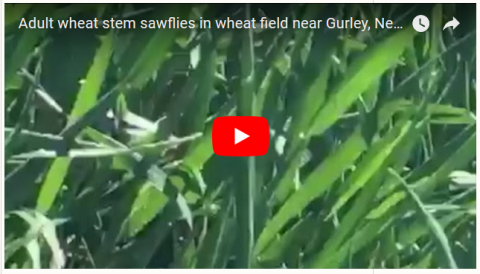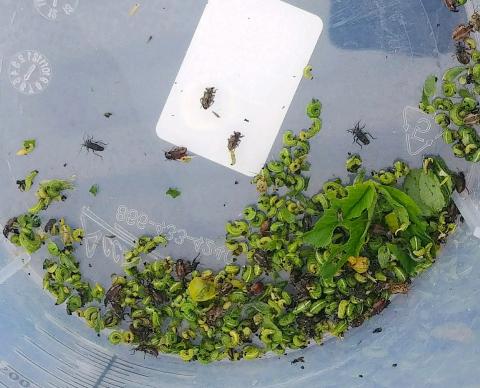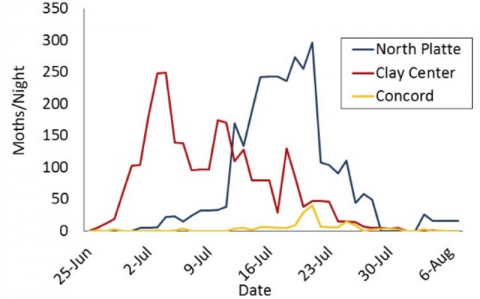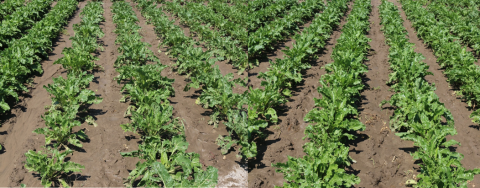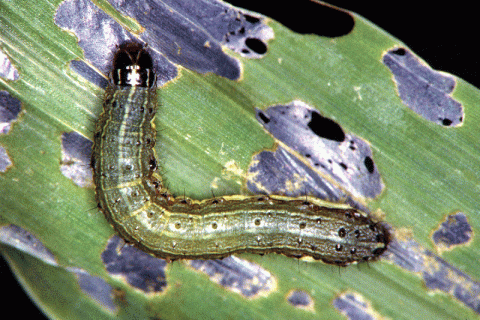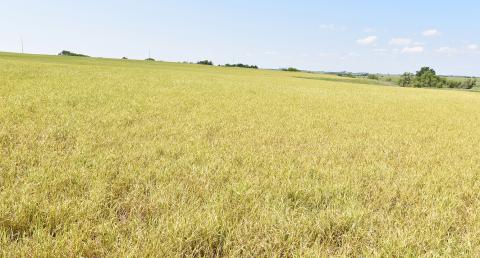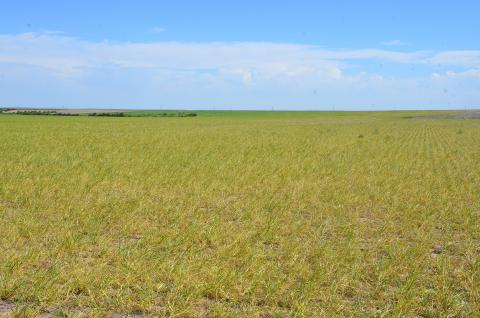Wheat Stem Sawfly Numbers Up in the Panhandle
June 6, 2018
Video: Populations of wheat stem sawflies, a serious pest of wheat in western Nebraska, are at high numbers this year. Surveys are underway in wheat fields, grasslands and pastures to evaluate grass hosts for the pest and its parasitoids.
Scout Diligently for Alfalfa Weevils in May And June
May 16, 2018
High populations of alfalfa weevils have been found in alfalfa throughout the Nebraska Panhandle; lower populations were reported this week in central and eastern Nebraska. The economics would warrant continued scouting through June to provide for timely treatment, if necessary, and yield protection.
Corn Rootworm Management Update
January 8, 2018
From the 2018 Crop Production Clinic Proceedings: Corn rootworm continues to be a problem for Nebraska growers who rotate crops infrequently. Additionally, resistance to insecticides and some Bt corn reduces efficacy of these important tools in some fields.
Western Bean Cutworm Pest Update
January 8, 2018
An article from the Proceedings of the 2018 Nebraska Extension Crop Production Clinics: An update on the western bean cutworm, a major pest in corn and dry bean production for most of Nebraska.
When To Replant Sugarbeets: The Relationship Between Population, Yield, And Replant Timing
January 8, 2018
An article from the Proceedings of the 2018 Nebraska Extension Crop Production Clinics: Early season stand loss from wind or frost can be severe enough to require replanting of a sugarbeet crop. Three years of field trials at the Panhandle Research and Extension Center were conducted to determine just how much stands need to be reduced to justify replanting.
Which Bt Traits Do You Need to Purchase?
October 12, 2017
When it comes to buying corn seed, avoid investing in GMO insect protection you don't need. This guide looks at available traits and which proteins are effective on which pest species to help growers select the product best suited to their fields.
Protect Future Wheat Yields: Control the Volunteer Green Bridge
August 2, 2017
Wheat streak mosaic virus (WSMV) problems have been extensive throughout the western Great Plains this year, significantly reducing the yield potential of many fields. A critical key in managing this threat in the next crop is elimination of volunteer wheat. Tillage or chemical weed control should occur at least one month before planting to allow host plants time to dry up and cease being a host.
Why Control of Volunteer Wheat is Critical to Protecting 2018 Yields
July 13, 2017
Timely control of volunteer wheat and other weeds is key to managing yield loss risk in your 2018 crop. Yield-limiting risk factors affected by weed control include wheat streak mosaic and other diseases, insects (wheat stem sawfly and disease vectors), moisture loss, and increased weed seed production.


